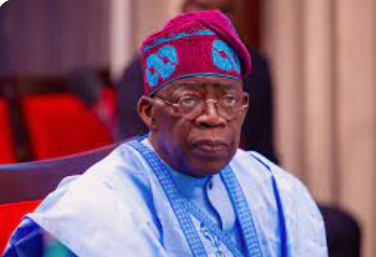
The report of the Stephen Oronsaye Presidential Committee on Restructuring and Rationalisation of Federal Government Parastatals, Commissions and Agencies has come to the fore of national discourse again following the directive of President Bola Tinubu on its immediate implementation. Perhaps such a presidential pronouncement is not alien to many Nigerians. Previous governments under the leadership of Goodluck Jonathan and Muhammadu Buhari had given similar directives at different times with no actualisation of any of the recommendations of the report after 12 years of its submission. Some political analysts have even described Tinubu’s directive as a mere diversionary tactic to shift focus from the biting hardship in the country. But going by Tinubu’s seemingly strong resolve to take radical and bold steps to change Nigeria’s economic narratives, some have argued that the President should be given the benefit of the doubt.
There is nothing wrong with implementing the Oronsaye report. According to the Presidency, 30 federal government agencies, commissions, and parastatals would either be scrapped, merged or subsumed. Although some interest groups and persons may still contend and likely protest on why some government agencies or parastatals should not be merged or subsumed for certain reasons best known to them, it is imperative to remind them that the country cannot continue to be wasteful. The financial stability of the country is dangling with heavy debts spent on frivolities. The need to seriously cut down the cost of governance is at its peak considering the current economic realities.
I still cannot fathom the purpose of establishing a Nigerian Army University when there is the Nigerian Defence Academic tasked with the role of providing officer cadets with knowledge, skills and values necessary to meet the requirements of a military officer through military, academic and character development. Why should the Economic and Financial Crimes Commission and the Independent Corrupt Practices and Other Related Offences Commission separately exit when both claim to fight financial crime corrupt practices? Aside from being a waste of resources, the duplication of roles of these agencies makes them weak and underperform. I think the President would make much impact should the report be strategically implemented.
On the other side, it is ironic that Tinubu is seeking to cut down the cost of governance when he has broken the record of appointing the highest number of ministers in the history of the country. Charity begins at home, they say. I wonder how Tinubu and his 47-member cabinet (apart from Betta Edu who is currently on suspension) resolved to implement the Oronsaye report without considering mapping out a plan to reduce the size of the government by cutting down the number of ministers who are largely feeding fat on the national treasury. Some persons were of the opinion that the amount spent on a minister may be enough to take care of 100 to 500 civil servants considering a minister’s humongous allowances, number of aides with ‘operational’ SUVs and cost of running individual’s office. A report pointedly said that the total salary and allowances for each minister amounted to N11.85m annually plus the furniture allowance of N6.08m. Tinubu should be courageous enough to drastically merge some ministries and relieve some ministers of their appointments to demonstrate prudence and ensure economic stability.
Similarly, while some may say that the ongoing constitutional amendments should pave the way for a reduction of the number of Senators and House of Representatives members, I will suggest that the Senate should be scrapped. Operating bicameral legislature had brought us to the current economic hardship with little to nothing to show off. Also, the number of constituencies in the Green Chamber should be adjusted exponentially.
In addition, it would be observed that the President is not being sincere with his policy statements. While he has been calling on the average Nigerians to roll up their sleeves and endure the current economic hostilities because the economy is bad, his government budgeted the sum of N1.5bn for the purchase of SUVs for the ‘Office of the First Lady,’ N4bn for renovation of his residential quarters; renovation of Dodan Barracks, his official residence, at another N4bn, and the renovation of the official quarters of the Vice President at N3bn billion, with the Minister of the Federal Capital Territory, Nyesom Wike, reportedly earmarking N15bn for the construction of a new residence for the Vice President.
Recently, the same government approved N500m for the inauguration of the 37-man Tripartite Committee on National Minimum Wage. What’s more? The nation was agog when the President announced that he had slashed the number of officials that would accompany him and other top government officials on any foreign trip. A statement released by the Presidency then noted that Tinubu had directed that no more than 20 individuals would be allowed to travel with him for any international trips. On the contrary, the President jetted out to Qatar on a state visit with a 38-member delegation including two of his children. Where are the “massive cost-cutting measures”? How do his statements and actions add up or align? The President should do what he says and say what he will do.
Lastly, Tinubu should not just try to score cheap political points by directing the immediate implementation of Oronsaye report, he should squarely curtail various redundancies in government agencies, parastatals and even in the Presidency. Also, he must ensure the blockage of revenue leakages, tackle corruption and have a value-for-money budget in order to champion the new Nigeria we are all yearning for.





